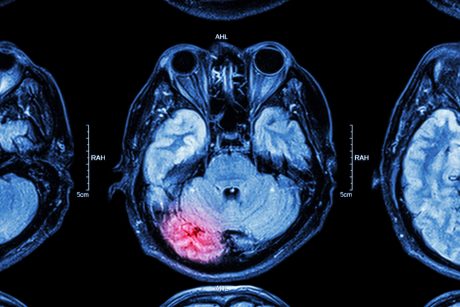Our client, RS, secured a life-changing settlement after a delay in diagnosing and treating a cardiac infection, which resulted in a mycotic aneurysm forming and bursting. This led to a brain haemorrhage, causing a permanent brain injury along with consequential problems.
Clinical Negligence partner Amy Fielding reviews RS’ claim.
Background and injuries sustained
Before the events that resulted in his injury, RS was career-driven having recently completed a graduate training scheme and commenced work in a job he found incredibly rewarding. He was at the early stage of his career but quickly building up his experience and found to be talented in his role.
RS was born with a congenital condition for which he received treatment throughout his life. This condition was well managed with an annual review from a specialist local hospital.
Prior to his hospital admission, RS began to feel unwell. They developed a cough and persistent night sweats and were diagnosed with a chest infection for which antibiotics were prescribed. Despite receiving medical treatment, their symptoms continued for several weeks. Eventually, RS was admitted to hospital due to severe chest pains and fever. He was initially diagnosed with pneumonia and discharged home on antibiotics. RS made further A&E visits and was admitted to hospital after presenting with the same underlying conditions, which were gradually becoming more severe.
Blood tests were carried out while at the defendant hospital. Despite the results of these tests being reported as abnormal, they were not acted upon or communicated to the treating clinicians. It took four months for the treating clinicians to recognise that RS had endocarditis and diagnose and treat this correctly. Unfortunately, due to the delay and longstanding infection, unbeknown to RS or his clinicians, a mycotic aneurysm had developed in his brain from the infection.
On starting treatment for his endocarditis, RS woke in hospital with a severe headache, and a scan revealed a bleed to his brain from a burst aneurysm that had developed. RS required emergency surgery to coil the aneurysm and a craniotomy to release the pressure from the swelling in his brain. Unfortunately, this resulted in permanent brain injury, cognitive impairment, dominant hand weakness and altered gait.
RS was unable to return to his previous career due to being left with reduced concentration, altered attention, slower information processing and an inability to react to circumstances swiftly.
The claim
Stewarts served an early letter of claim on the hospital trust that treated RS, citing the treatment he received as negligent. It was alleged that had the omission with the microbiology reporting not occurred, RS would have had his cardiac infection diagnosed and treated before any aneurysm could occur and would have avoided any brain damage.
Fortunately, the hospital trust accepted that a delay in diagnosing endocarditis caused RS’s injuries. It accepted that had the blood tests been correctly reported, this diagnosis would have been made earlier, and the aneurysm and subsequent brain bleed and need for surgery would have been avoided. The hospital trust apologised to RS and his family for the standard of care delivered.
Settlement
Following these admissions, Amy Fielding and Leading Counsel, Rachel Vickers KC, continued with the case to secure a fair settlement for RS. The hospital trust proposed an offer of £1m. Given that RS had been able to return to work in a different capacity, he was advised to accept this in full settlement of his claim.
Testimonial
RS’ father says: “Amy and the Stewarts team were totally focussed on achieving the very best outcome and managed the process in a professional manner, ensuring we were regularly debriefed at each stage of events. The experts engaged were very approachable and explained their interpretation of the facts so we clearly understood the findings presented to us.
Amy and the team offered guidance and most importantly support, compassion and understanding of the emotional impact on our family in dealing with the case.”
You can find further information regarding our expertise, experience and team on our Clinical Negligence pages.
If you require assistance from our team, please contact us.
Subscribe – In order to receive our news straight to your inbox, subscribe here. Our newsletters are sent no more than once a month.






